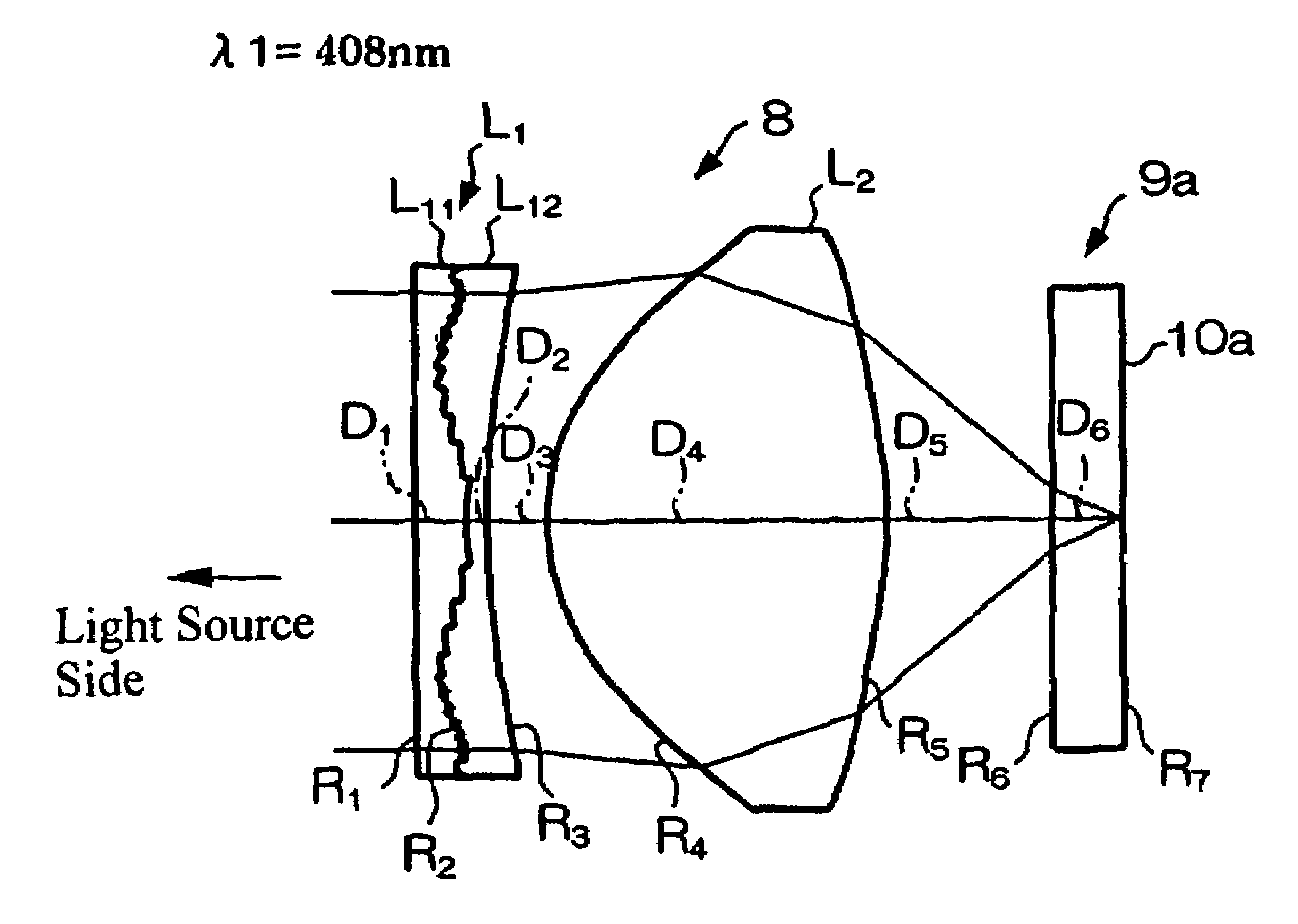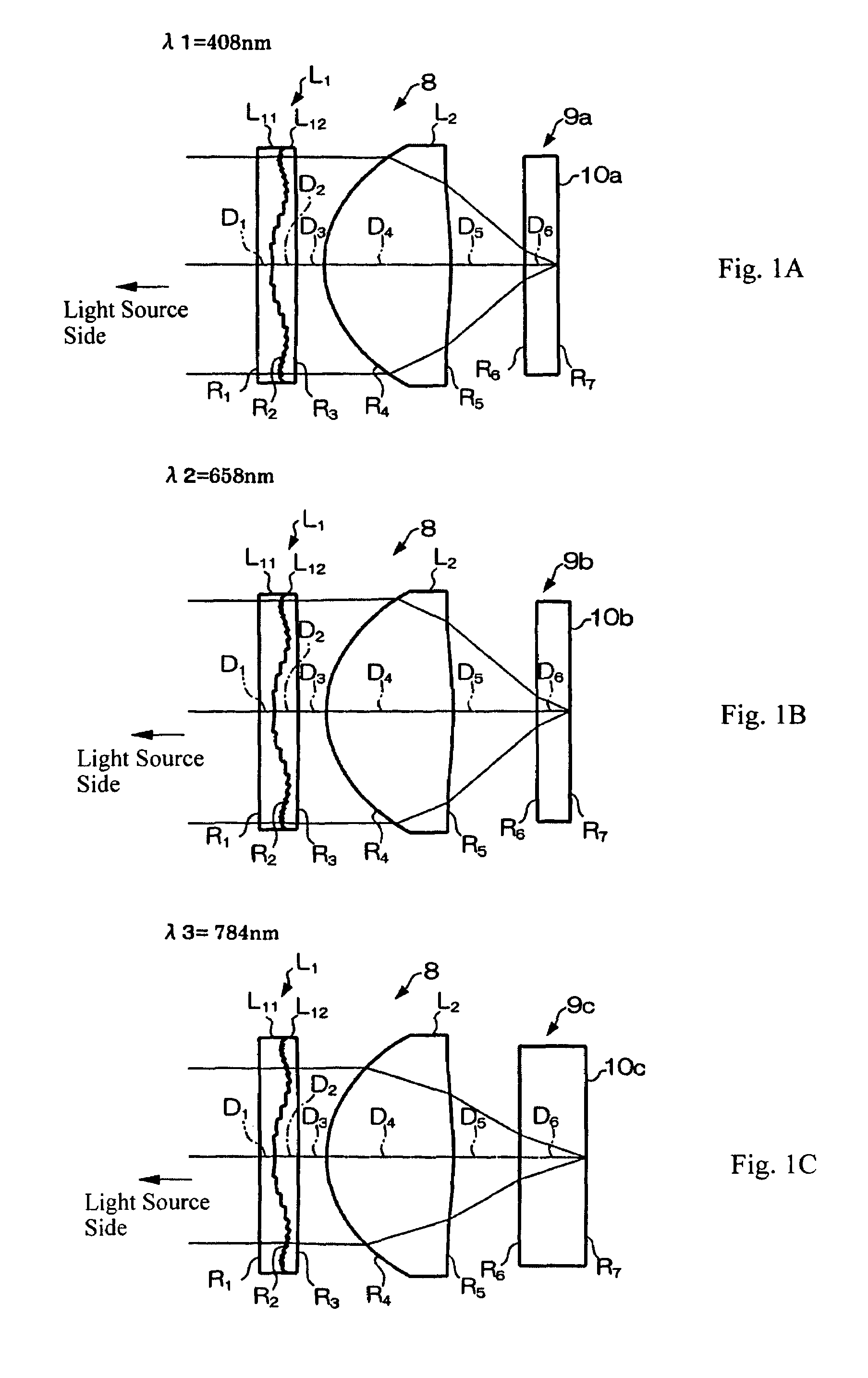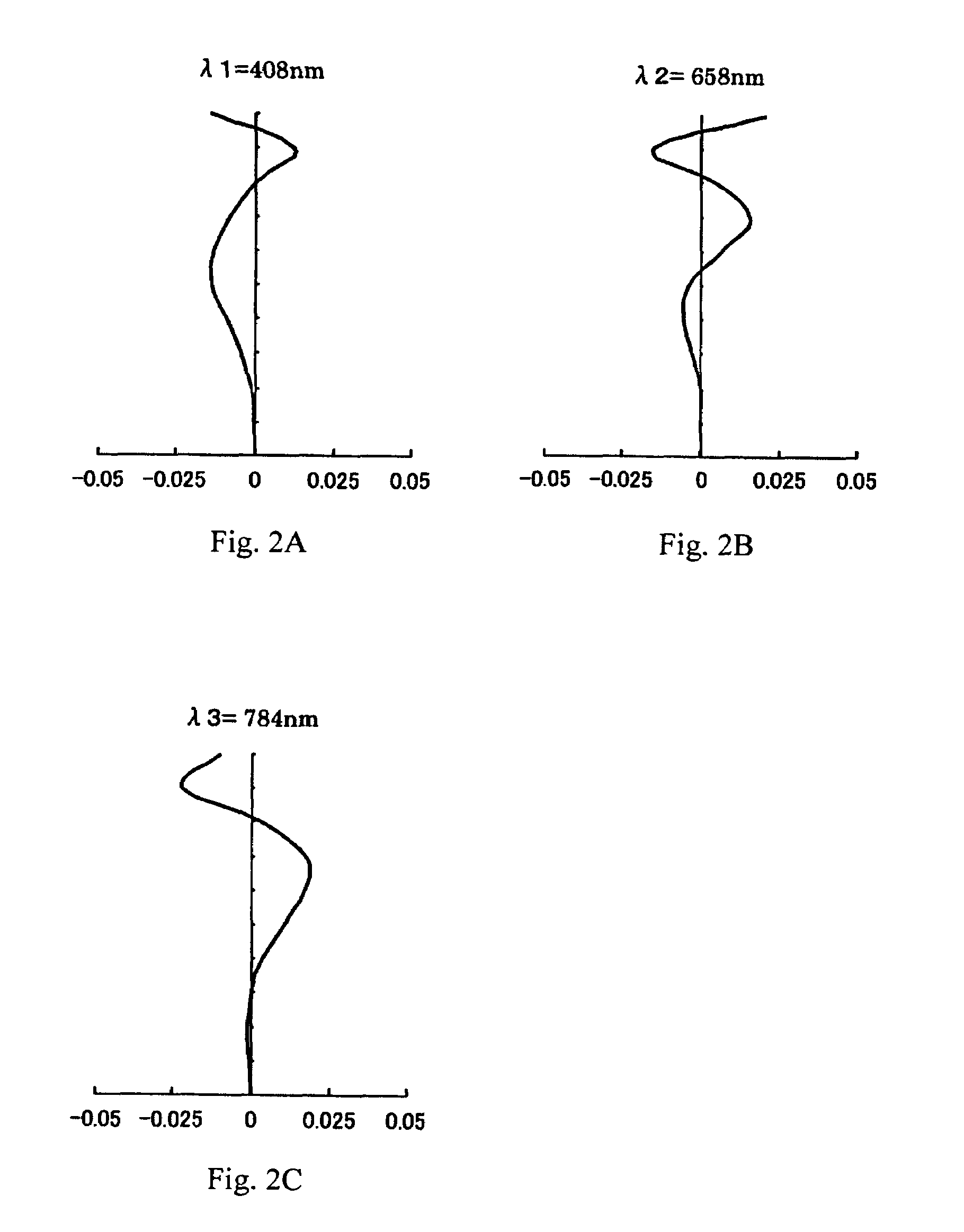Objective optical system for optical recording media and optical pickup device using it
a technology of optical recording media and optical pickup device, which is applied in the field of objective optical system, can solve the problems of deteriorating processing accuracy, remarkably reducing tracking stability, and deteriorating diffraction efficiency, so as to increase the diffraction efficiency of light beam, increase the stability of tracking, and increase the degree of freedom in arrangement
- Summary
- Abstract
- Description
- Claims
- Application Information
AI Technical Summary
Benefits of technology
Problems solved by technology
Method used
Image
Examples
embodiment 1
[0078]As described previously, FIGS. 1A-1C are schematic diagrams that depict cross-sectional views of the objective optical system according to Embodiment 1 of the present invention, with FIG. 1A showing the operation of the objective optical system when used with a first optical recording medium 9a, with FIG. 1B showing the operation of the objective optical system when used with a second optical recording medium 9b, and with FIG. 1C showing the operation of the objective optical system when used with a third optical recording medium 9c. Additionally, as described previously, FIG. 5 is a schematic diagram of an optical pickup device using the objective optical system according to Embodiment 1 of FIGS. 1A-1C.
[0079]As shown in FIGS. 1A-1C, the objective optical system 8 includes, arranged in order along an optical axis from a light source side, a diffractive optical element L1 and an objective lens L2. The diffractive optical element L1 is a cemented structure of two lens elements L...
embodiment 2
[0093]As described previously, FIGS. 3A-3C are schematic diagrams that depict cross-sectional views of the objective optical system according to Embodiment 2 of the present invention, with FIG. 3A showing the operation of the objective optical system when used with a first optical recording medium 9a, with FIG. 3B showing the operation of the objective optical system when used with a second optical recording medium 9b, and with FIG. 3C showing the operation of the objective optical system when used with a third optical recording medium 9c. The objective optical system 8 of FIGS. 3A-3C according to Embodiment 2 is similar to that of FIGS. 1A-1C according to Embodiment 1. However, in addition to Embodiment 2 including aspheric surfaces for surfaces that are aspheric surfaces in Embodiment 1, in Embodiment 2, the surface of the diffractive optical element L1 at the optical recording medium side is also an aspheric surface. Also, in Embodiment 2, non-zero aspheric coefficients up to A10...
PUM
 Login to View More
Login to View More Abstract
Description
Claims
Application Information
 Login to View More
Login to View More - R&D
- Intellectual Property
- Life Sciences
- Materials
- Tech Scout
- Unparalleled Data Quality
- Higher Quality Content
- 60% Fewer Hallucinations
Browse by: Latest US Patents, China's latest patents, Technical Efficacy Thesaurus, Application Domain, Technology Topic, Popular Technical Reports.
© 2025 PatSnap. All rights reserved.Legal|Privacy policy|Modern Slavery Act Transparency Statement|Sitemap|About US| Contact US: help@patsnap.com



